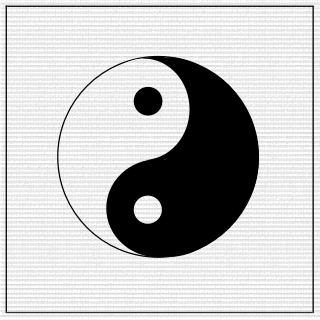L0LY0U228 joined the platoon Inner Peace

Inner Peace
Platoon Presentation
Inner peace (or peace of mind) refers to a deliberate state of psychological or spiritual calm despite the potential presence of stressors. Being "at peace" is considered by many to be healthy (homeostasis) and the opposite of being stressed or anxious, and is considered to be a state where our mind performs at an optimal level with a positive outcome. Peace of mind is thus generally associated with bliss, happiness and contentment.
Peace of mind, serenity, and calmness are descriptions of a disposition free from the effects of stress. In some cultures, inner peace is considered a state of consciousness or enlightenment that may be cultivated by various forms of training, such as breathing exercises, prayer, meditation, tai chi or yoga, for example. Many spiritual practices refer to this peace as an experience of knowing oneself. Finding inner peace (Shanti, Santhi or Shanthi, from Sanskrit: शान्तिः, śāntiḥ, Sanskrit pronunciation: [ɕaːntɪh]; √ शम śam 'be calm') means peace, rest, calmness, tranquility, or bliss is often associated with traditions such as Hinduism, Buddhism, Sikhism and Jainism.
People have difficulties embracing their inner spirituality because everyday stressors get the best of them; finding peace and happiness in the little joys of life can seem like a lot of work, and results do not seem all that gratifying. Achieving spirituality is a step-by-step process; there are ways through which one can become more spiritual every day.[citation needed]
Tenzin Gyatso, the current and 14th Dalai Lama, emphasizes the importance of inner peace in the world:
The question of real, lasting world peace concerns human beings, so basic human feelings are also at its roots. Through inner peace, genuine world peace can be achieved. In this the importance of individual responsibility is quite clear; an atmosphere of peace must first be created within ourselves, then gradually expanded to include our families, our communities, and ultimately the whole planet.
Peace of mind, serenity, and calmness are descriptions of a disposition free from the effects of stress. In some cultures, inner peace is considered a state of consciousness or enlightenment that may be cultivated by various forms of training, such as breathing exercises, prayer, meditation, tai chi or yoga, for example. Many spiritual practices refer to this peace as an experience of knowing oneself. Finding inner peace (Shanti, Santhi or Shanthi, from Sanskrit: शान्तिः, śāntiḥ, Sanskrit pronunciation: [ɕaːntɪh]; √ शम śam 'be calm') means peace, rest, calmness, tranquility, or bliss is often associated with traditions such as Hinduism, Buddhism, Sikhism and Jainism.
People have difficulties embracing their inner spirituality because everyday stressors get the best of them; finding peace and happiness in the little joys of life can seem like a lot of work, and results do not seem all that gratifying. Achieving spirituality is a step-by-step process; there are ways through which one can become more spiritual every day.[citation needed]
Tenzin Gyatso, the current and 14th Dalai Lama, emphasizes the importance of inner peace in the world:
The question of real, lasting world peace concerns human beings, so basic human feelings are also at its roots. Through inner peace, genuine world peace can be achieved. In this the importance of individual responsibility is quite clear; an atmosphere of peace must first be created within ourselves, then gradually expanded to include our families, our communities, and ultimately the whole planet.